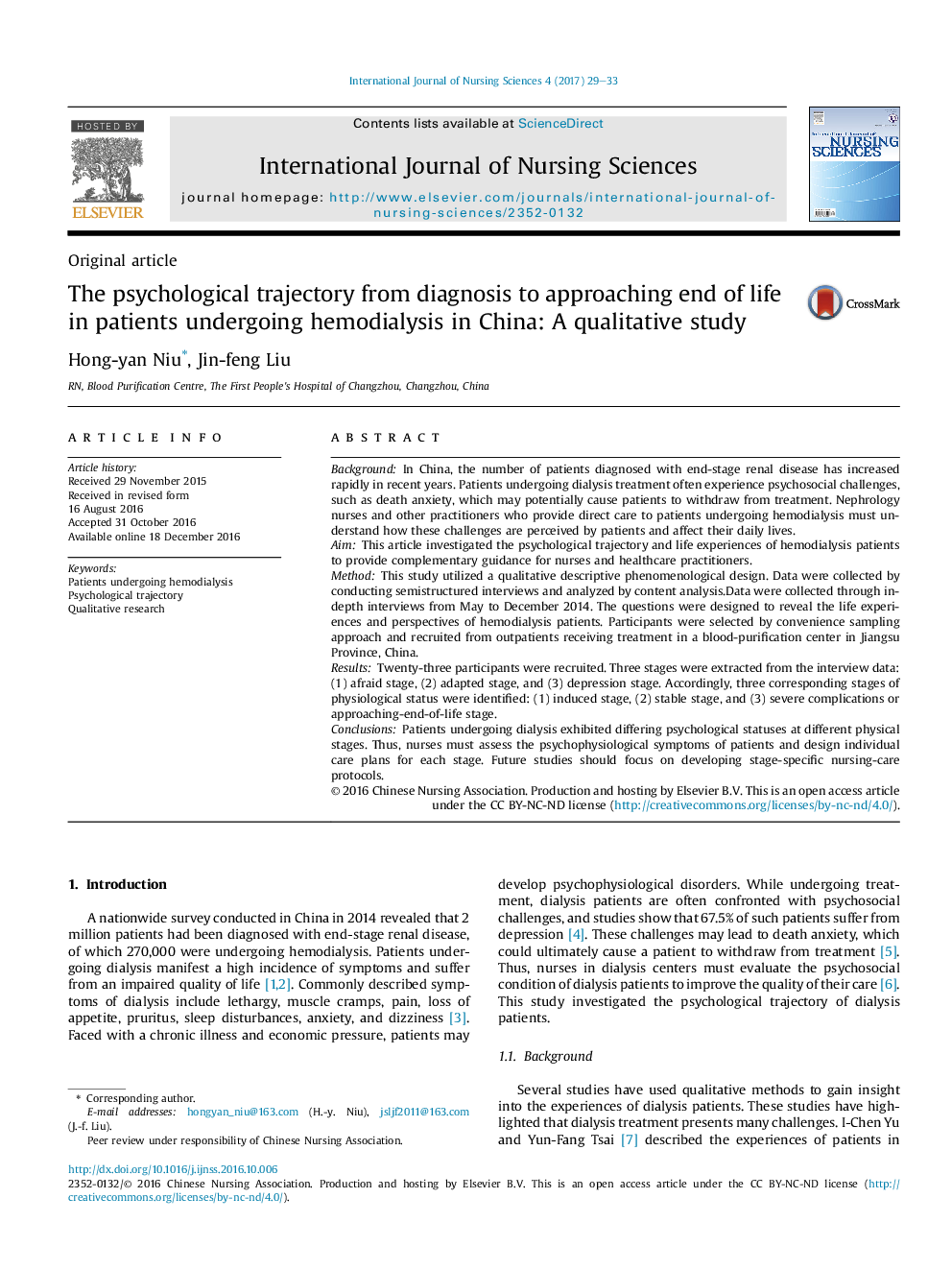| Article ID | Journal | Published Year | Pages | File Type |
|---|---|---|---|---|
| 5568369 | International Journal of Nursing Sciences | 2017 | 5 Pages |
BackgroundIn China, the number of patients diagnosed with end-stage renal disease has increased rapidly in recent years. Patients undergoing dialysis treatment often experience psychosocial challenges, such as death anxiety, which may potentially cause patients to withdraw from treatment. Nephrology nurses and other practitioners who provide direct care to patients undergoing hemodialysis must understand how these challenges are perceived by patients and affect their daily lives.AimThis article investigated the psychological trajectory and life experiences of hemodialysis patients to provide complementary guidance for nurses and healthcare practitioners.MethodThis study utilized a qualitative descriptive phenomenological design. Data were collected by conducting semistructured interviews and analyzed by content analysis.Data were collected through in-depth interviews from May to December 2014. The questions were designed to reveal the life experiences and perspectives of hemodialysis patients. Participants were selected by convenience sampling approach and recruited from outpatients receiving treatment in a blood-purification center in Jiangsu Province, China.ResultsTwenty-three participants were recruited. Three stages were extracted from the interview data: (1) afraid stage, (2) adapted stage, and (3) depression stage. Accordingly, three corresponding stages of physiological status were identified: (1) induced stage, (2) stable stage, and (3) severe complications or approaching-end-of-life stage.ConclusionsPatients undergoing dialysis exhibited differing psychological statuses at different physical stages. Thus, nurses must assess the psychophysiological symptoms of patients and design individual care plans for each stage. Future studies should focus on developing stage-specific nursing-care protocols.
